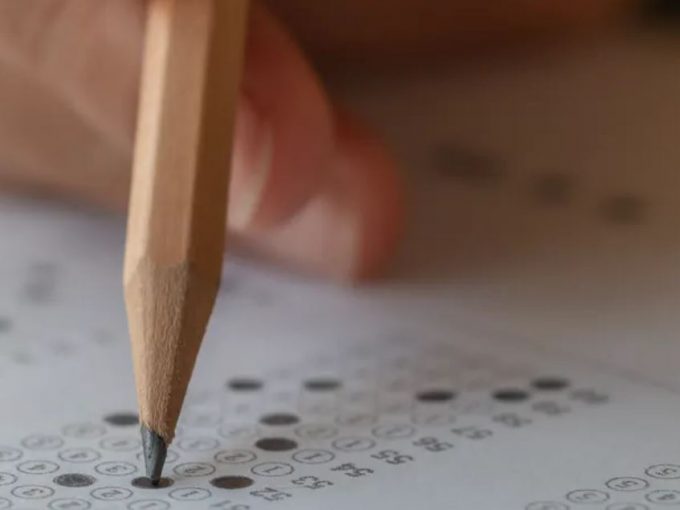
www.shutterstock.com
<h2><span data-contrast="auto">New Zealand’s students may receive a higher 2022 PISA score than expected due to a skewed sample, says the Ministry of Education. </span><span data-ccp-props="{";201341983";:0,";335559739";:160,";335559740";:259}"> </span></h2>
<p><span data-contrast="auto">The Programme for International Student Assessment (PISA) is a two-hour test for 15-year-olds testing literacy, numeracy, science literacy and – in 2022 – creative thinking. It is delivered across the OECD every three years and can be used for international comparisons as well as tracking educational attainment over time. </span><span data-ccp-props="{";201341983";:0,";335559739";:160,";335559740";:259}"> </span></p>
<p><a href="https://www.schoolnews.co.nz/latest-print-issue/" target="_blank" rel="noopener"><strong>Read the Term 4 edition of <em>School News</em> HERE</strong></a></p>
<p><span data-contrast="auto">The results of the 2022 cohort are due out in December, but the Ministry of Education has already </span><a href="https://www.educationcounts.govt.nz/publications/series/2543/pisa-2022/pisa-2022-non-response-bias-analysis" target="_blank"><span data-contrast="none">released an analysis</span></a><span data-contrast="auto"> which states that New Zealand’s scores are likely to be about 10 points higher due to sampling bias resulting from challenges and barriers associated with Covid-19. </span><span data-ccp-props="{";201341983";:0,";335559739";:160,";335559740";:259}"> </span></p>
<figure id="attachment_16776" aria-describedby="caption-attachment-16776" style="width: 300px" class="wp-caption alignnone"><img class="size-medium wp-image-16776" src="https://www.schoolnews.co.nz/wp-content/uploads/2020/06/AdobeStock_187619452-300x200.jpeg" alt="" width="300" height="200" /><figcaption id="caption-attachment-16776" class="wp-caption-text">Image: AdobeStock 187619452</figcaption></figure>
<p><span data-contrast="auto">The report states that schools and students are generally randomly selected through a two-stage stratified sampling design. Schools are randomly selected to ensure a representative sample, and from those schools, students are again randomly selected to provide a representative sample of that school’s student body. </span><span data-ccp-props="{";201341983";:0,";335559739";:160,";335559740";:259}"> </span></p>
<p><span data-contrast="auto">In 2022, 227 English-medium schools with 15-year-old students were randomly selected from Aotearoa New Zealand’s pool. Larger schools were more likely to be selected due to their larger proportion of 15-year-old students. From these schools, 25 – 75 students were selected to participate. However, only 72 percent of selected schools and students participated. Usually, PISA has strict international participation standards of 85 percent of schools and 80 percent of students. </span><span data-ccp-props="{";201341983";:0,";335559739";:160,";335559740";:259}"> </span></p>
<p><span data-contrast="auto">At the time of selection, RNZ reported that some Principals refused to participate due to Covid-19 related pressure on their students. </span><span data-ccp-props="{";201341983";:0,";335559739";:160,";335559740";:259}"> </span></p>
<p><span data-contrast="auto">A briefing paper from 2022 to Jan Tinetti said “the reason nearly all declining schools have given relates to Covid-19 &#8211; either due to staff shortage/ burdens, student learning loss and/ or the two years of disruption and stress on students and staff.”</span><span data-ccp-props="{";201341983";:0,";335559739";:160,";335559740";:259}"> </span></p>
<p><span data-contrast="auto">Then Secondary Principals Association president Vaughan Couillault </span><a href="https://www.rnz.co.nz/news/national/466836/schools-blame-covid-19-pressures-for-decision-to-bypass-pisa-tests" target="_blank"><span data-contrast="none">said to RNZ</span></a><span data-contrast="auto">: &#8220;Because of what my school has been through in the last 18 months with Covid response and disruption to learning, my senior leadership team and I made the decision that it would be a disruption that we could do without. Because it is quite burdensome to engage in the particular testing that we&#8217;re talking about.”</span><span data-ccp-props="{";201341983";:0,";335559739";:160,";335559740";:259}"> </span></p>

EXCLUSIVE: Teachers used to be paid two to three times more than minimum wage workers,…
After an “overwhelming” vote to reject the latest Government offer, secondary school teachers will begin…
Second-language learning should be compulsory, says a new report from a forum bringing together academics,…
A new entitlement aimed to improve access to learning support coordinators for schools with students…
Educators have raised questions about the Ministry of Education’s new secondary school subjects, set to…
Professional learning and development (PLD) for teachers needs to be higher impact for teachers and…
This website uses cookies.